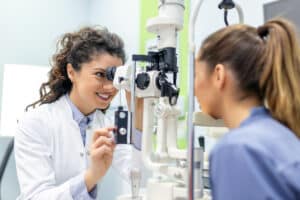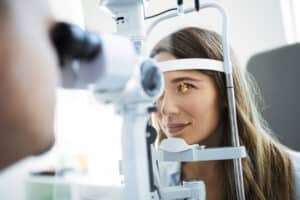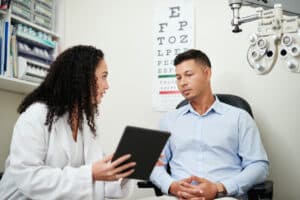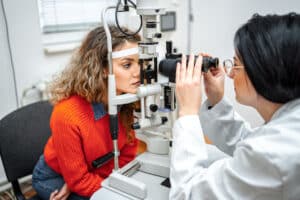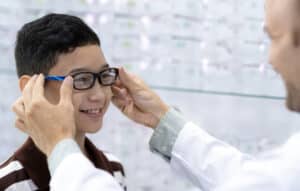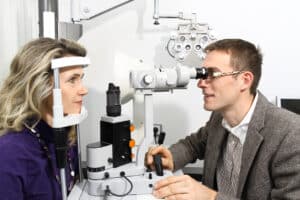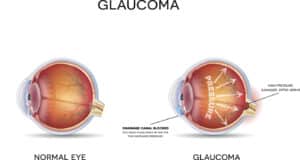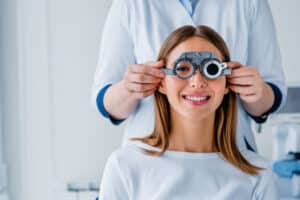Do you have blurry vision or double vision? Do you face trouble seeing objects that are too close or too far? Do you need to update your prescription glasses or lenses? Seeing an optometrist may be the right solution. Optometrists are healthcare professionals specializing in diagnosing, treating and managing the most common eye and vision…
Blog
What Are the Benefits of Seeing an Ophthalmologist?
From getting up in the morning to when we get to bed at night, our eyes constantly work. During these times, our eyes are exposed to harmful rays from electronics, UV rays of the sun, environmental pollutants, and many more things that can damage our eyes. One best way to reduce eye damage risk is…
How to Prepare for a Visit to a Good Ophthalmologist
Eye exams are not just for people who have trouble seeing, but everyone between the age of 18 years to 64 years is recommended an annual eye exam by the American Optometric Association (AOA). Regular visits to an ophthalmologist for routine eye exams are very important. This helpsto find vision problems and serious eye conditions early…
Why Should You See an Optometrist?
An optometrist is a healthcare professional who specializes in providing primary vision care. Optometrists are not ophthalmologists or medical doctors but are licensed to practice optometry – a healthcare profession that involves giving eye exams, finding eye abnormalities, treating certain eye diseases, and writing prescriptions for glasses and contact lenses. Seeing an optometrist is vital…
Questions to Ask When Choosing a Good Ophthalmologist
Ophthalmologists are vital to healthcare as they are responsible for your eye health. It’s a good idea to see an ophthalmologist for regular eye checkups and to receive early diagnosis and treatment of eye problems. Finding a good ophthalmologist can be very challenging and, at the same time, a crucial task for you, especially if…
How to Prepare for an Eye Doctor Visit?
According to the Centers for Disease Control and Prevention (CDC), about 11 million Americans aged 12 and above need vision care and/or correction, yet they ditch their eye doctor visit. Regular eye doctor visits and eye exams are necessary for the early detection of vision issues and other serious eye-related problems that can lead to…
Eye Care for Diabetics: Treating Eye Disease
If you have received a diagnosis of diabetes, whether type1 or 2, you know you are at higher risk for developing problems with your crucial organs and body parts, such as the heart, blood vessels, kidneys, feet, etc., than someone without it. One such crucial organ is your eyes. Constant high blood sugar in diabetic…
11 Tips to Ensure the Best Eye Exam Possible
Getting an eye exam is one of the best things you can do to ensure the good health of your eyes and detect a variety of vision problems and other eye diseases early when they are more likely to respond to treatments. A regular eye exam is particularly vital if you’re at risk for visual…
The 9 Most Accurate Tests for Glaucoma
Glaucoma is a serious eye disease that affects the optic nerve. It is the leading cause of blindness for people over 60 years old, but the condition can often be prevented with early treatment. There are a range of accurate glaucoma tests that can be used to diagnose glaucoma. Let’s talk about the 9 most…
What Kind Of Eye Surgery Can Be Done In An Eye Clinic
An eye clinic can provide comprehensive care for all your eye health and vision needs. This includes state-of-the-art eye exams, treatments, and prevention of eye diseases and vision impairments,as well as eye surgery for a range of conditions. Vision care throughout all stages of life is an important element of healthcare and crucial in protecting…

